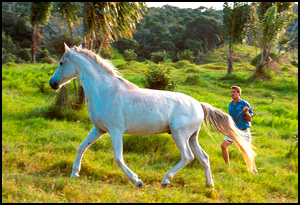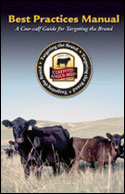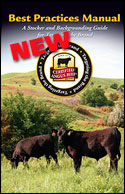Vaccinate Horses for
Eastern Equine Encephalitis
 Four people have died in Florida this year (as of Sept. 15) from eastern equine encephalitis (EEE), a mosquito-borne illness more commonly associated with horses. According to the Centers for Disease Control and Prevention (CDC), every year a small number of human deaths are caused by EEE. The disease causes brain inflammation and kills about one-third of the people who contract it. There is no human vaccine.
Four people have died in Florida this year (as of Sept. 15) from eastern equine encephalitis (EEE), a mosquito-borne illness more commonly associated with horses. According to the Centers for Disease Control and Prevention (CDC), every year a small number of human deaths are caused by EEE. The disease causes brain inflammation and kills about one-third of the people who contract it. There is no human vaccine.
But an animal scientist with the Alabama Cooperative Extension System says it's important that horse owners take precautions to protect their animals from this deadly disease. Cindy McCall says there is little reason for a horse to contract the disease because a safe and inexpensive vaccine is available.
"Horse owners in Alabama should vaccinate their horses twice a year for sleeping sickness," McCall says. "Veterinarians are recommending that horses vaccinated before March be revaccinated to boost their immunity."
She adds that the best time to revaccinate is mid- to late summer, such as in August or September, when some cases of EEE are seen in Alabama. Revaccinating before this time will increase protection against the disease.
EEE, a viral disease spread by certain kinds of mosquitoes, is almost always fatal in horses and is characterized by the progressive failure of the horse's central nervous system. Symptoms in horses include depression, high fever, hypersensitivity to sound and touch, apparent blindness, wandering and paralysis.
"Horse owners should check with their vets on vaccination schedules," McCall says, "but I would revaccinate any horse whose last vaccination was more than four months earlier."
The horse is a terminal host for the virus. This means that an infected horse cannot infect humans or another animal.
Mosquito control measures such as using insect repellents on horses and emptying stagnant water pools may help slow the disease's spread. Horse owners may want to stable animals to limit their exposure to mosquitoes.
[Click here to go to the top of the page.]





